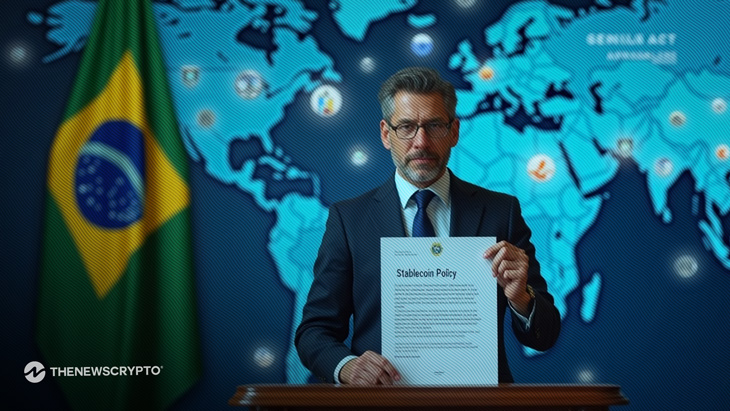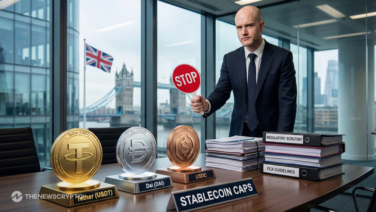- Brazil restricts stablecoin transfers to self-custody wallets to reduce fraud and money laundering risks.
- The Central Bank plans expanded 2025 rules for DeFi and asset tokenization with global regulatory cooperation.
Brazil is accelerating its cryptocurrency regulatory framework, positioning itself ahead of the United States. According to a report by The Defiant, the Central Bank of Brazil (BCB) has enforced strict rules to tackle stablecoin transfers to increase security and management. These rules limit the movement to self-custody wallets, particularly the ones with foreign currency-denominated stablecoins. This approach concerns risk mitigation and prevention connected to stablecoins from illicit purposes.
Phased Regulatory Approach to Strengthen Oversight
Following a public consultation in January 2024 on anti-money laundering (AML) controls and asset segregation, the BCB prepared a second consultation phase. This upcoming phase will focus on operational rules for virtual asset service providers (VASPs) and their authorization processes.
By the end of 2024, the bank is intending to bring a regulatory proposal. The officials expect the commission to follow suit, with the aim of integrating the cryptos into the larger financial setup of Brazil. Such a step-by-step plan seeks a balance between financial innovation and effort towards consumer protection and stability of the system.
Stablecoin Transfers Face New Restrictions
Stablecoins represent approximately 70% of Brazil’s crypto transactions in 2024. To mitigate risks such as fraud, money laundering, and tax evasion, the BCB proposes tighter controls on transfers to wallets managed by non-Brazilian entities.
The new rules include increased monitoring of cross-border stablecoin flows and stricter know-your-customer (KYC) requirements for VASPs. These measures build on existing laws, including Law No. 14.478/2022 and Decree No. 11.563/2023, which grant the central bank authority over virtual asset services. Under this framework, VASPs must register with the BCB and meet AML and risk management standards.
Brazil’s Regulatory Position Compared to the U.S.
Although the U.S. has delays in the passing of the GENIUS Act, Brazil continues to progress. This forward-looking position is in contrast with continuous confusion in the United States to regulate crypto.
The actions of Brazil have attracted attention, particularly because the country had also made the headlines due to the launch of the first XRP exchange-traded fund (ETF). In addition, Belo Horizonte recently announced itself as the “Capital of Bitcoin” and this is indicative of increasing crypto passion in Brazil.
Looking ahead, Brazil plans to expand regulations to cover stablecoin-specific legislation and asset tokenization. The BCB aims to introduce rules for decentralized finance (DeFi) platforms in 2025. The central bank also intends to cooperate with international regulators and provide cross-border interoperability for digital finances. This evolving framework makes Brazil a great leader within the crypto space of Latin America, with a focus on clarity of regulations and safety.
Highlighted Crypto News Today:








